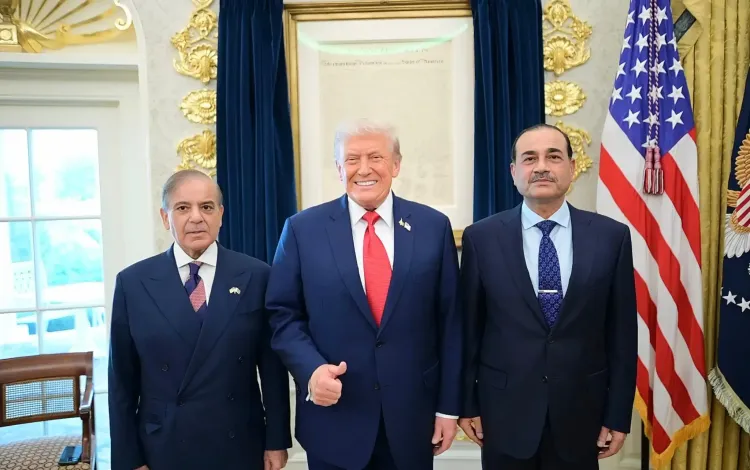Is Pakistan Still a Convenient US Ally?

Synopsis
Key Takeaways
- Pakistan's strategic alliance with the US is rooted in historical context.
- Geopolitical tensions influence the dynamics of the relationship.
- The military's role remains prominent in Pakistan's governance.
- Investment opportunities exist, particularly in the mineral sector.
- The designation of the BLA reflects ongoing security challenges.
New Delhi, Sep 26 (NationPress) Pakistan has long been viewed as a strategic ally of the United States, particularly during and post-Cold War, often complying with White House directives, whether for incentives or criticism.
Geographically, Pakistan holds a crucial position, fostering relations with China and Arab nations. Given that most administrations in Islamabad are financially and morally challenged, they are often easily influenced by the military and external forces.
Understanding its proximity to China, India, and Afghanistan, the US recognizes Pakistan's pivotal role in South Asian geopolitics. The growing ties with Saudi Arabia, highlighted by a recent defense agreement, have also raised concerns among neighboring countries.
Washington continues to regard Pakistan as a key player in regional security, especially in counterterrorism. The historical context of covert operations from Pakistani territory against Soviet forces in Afghanistan is well acknowledged. These factors, among others, resonate with US President Donald Trump's agenda for 'Make America Great Again', leading to a newly signed trade agreement that includes a 19 percent tariff on Pakistani imports and US involvement in the development of Pakistan's oil reserves.
Pakistan is actively seeking increased US investments, particularly in its mineral sector, which could offer significant economic uplift, create jobs, and promote infrastructure development. Islamabad is keen on igniting US interest in challenging geopolitical areas where even its military struggles to quell unrest.
On August 11, the US State Department designated the Balochistan Liberation Army (BLA) and its alias, the Majeed Brigade, as a Foreign Terrorist Organization (FTO), highlighting ongoing security concerns.
The troubled province of Balochistan is rich in minerals including gold, silver, copper, and lithium, while regions like Gilgit-Baltistan and Khyber Pakhtunkhwa are believed to hold significant lithium reserves. The Thar coalfield in Sindh, with vast lignite reserves, further emphasizes the region's potential.
The US expresses interest in Pakistan's rare earth minerals and broader investment avenues, yet tribal revolts and unclear governance hamper the exploitation of these resources. Islamabad hopes to mitigate these uprisings with American support. Consequently, General Asim Munir's frequent visits to the White House have stirred speculation about potential discussions regarding mining in conflict-ridden areas.
General Munir, who was recently hosted for lunch by Trump, joined Prime Minister Shehbaz Sharif on his inaugural official visit to the White House. This visit underscored the influence of Rawalpindi over Islamabad's political landscape, with indications that solutions for resource extraction in tumultuous regions were likely addressed.
Meanwhile, reports from Washington noted President Trump kept his guests waiting around 30 minutes before their meeting, a reminder to the Pakistani delegation of their standing.









